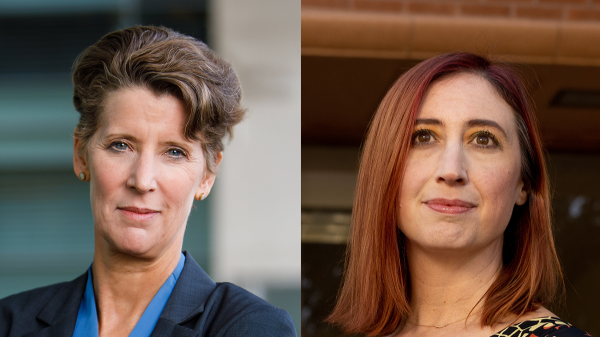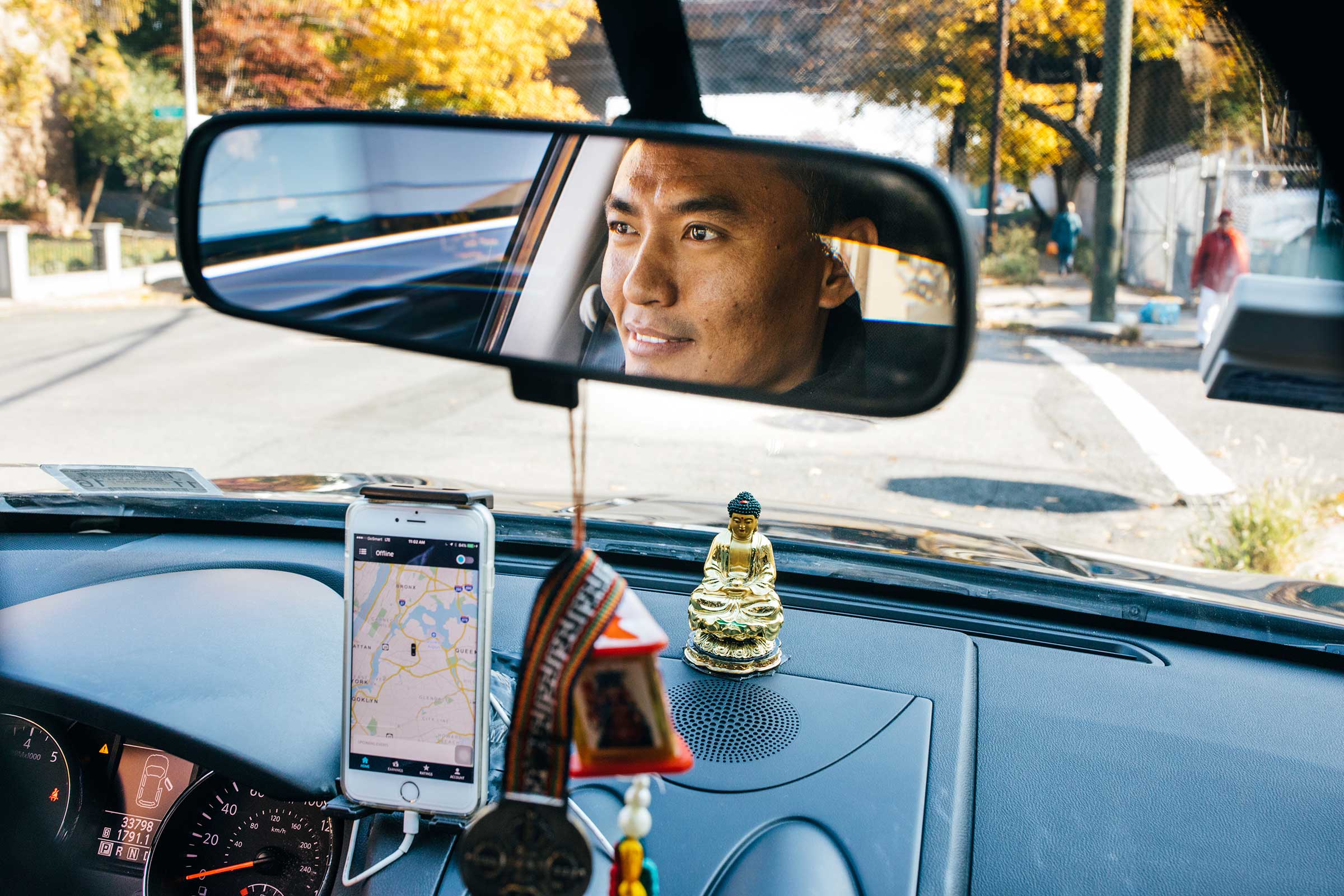Editor's note: This story is being highlighted in ASU Now's year in review. Read more top stories from 2018 here.
Uber and Arizona State University are partnering to provide a pathway to a fully funded college degree for thousands of Uber drivers and their families, starting today.
This is part of a shared commitment by both enterprises to pioneer new ways to expand opportunity and access to higher education. The new education program will be available to eligible Uber drivers in eight pilot locations, including Phoenix, and can provide an undergraduate degree through ASU Online or nondegree courses through ASU’s Continuing and Professional Education program.
The ASU and Uber Education Partnership addresses the need for a more flexible way for people to achieve postsecondary education, according to Phil Regier, CEO of EdPlus at ASU, the unit that houses ASU Online and other initiatives.
“Uber is at the vanguard of a new type of economy where people are accessing employment in ways that were inconceivable before handheld phones and technology changed the way we live and work,” he said, adding that the combination of the two organizations is “just the tip of what we’ll see in the future.”
“Flexibility is foundational to our two enterprises,” noted ASU President Michael Crow and Uber CEO Dara Khosrowshahi in a just-published, joint-bylined opinion piece in The Arizona Republic. “... We believe there is an opportunity to bring the power of our platforms together to expand access to flexible work and flexible education, and opportunities that come with both.”
The education program is open to drivers who have completed at least 3,000 rides and achieved platinum or diamond status on Uber Pro, a new rewards system that’s also being unveiled today. While similar to ASU’s program with Starbucks, the Uber partnership is broader, allowing drivers to pass tuition coverage to a family member — a spouse, domestic partner, child, sibling, parent, legal guardian or dependent.
The initiative was launched after Uber sought feedback from drivers, according to Daniel Danker, head of driver product for Uber.
“Our big takeaway was this: Drivers are working every single day to provide opportunities for themselves and, crucially, also for their families,” he said.
“That is the motivation behind Uber Pro. It’s a way for us to recognize the motivation that our drivers have and the pride they feel in the work they do.”
Drivers, or their family members, have three options in the education program:
- They can choose from among more than 80 undergraduate degree programs offered by ASU Online.
- Or, if they are unsure about taking university courses or are not yet admissible to ASU, they can take classes through the Global Freshman Academy at ASU, a low-risk pathway to admission that also earns college credit.
- Or they can take nondegree courses in English as a second language or entrepreneurship.
Danker said that driver feedback led to the nondegree offerings.
“More than half the drivers told us that they’re interested in starting a business within the next five years, and a third told us that they speak English as a second language,” he said.
The program — launching in eight pilot locations — will allow the driver to pass along the tuition coverage to a family member — a spouse, domestic partner, child, sibling, parent, legal guardian or dependent. Photo by Uber
Regier said that ASU is uniquely qualified to partner with Uber on the project. The university is built to scale and can add many thousands of additional students, he said.
“These efforts are completely consistent with the charter of the university because we’re providing access to a group of people who wouldn’t have access to a quality university program,” said Regier, who also is dean of educational initiatives at ASU.
The ASU and Uber Education Partnership will eventually be rolled out to drivers nationwide.
“We know that degree attainment contributes to the overall health of a community, and in this case, it’s the national community,” he said.
Once students graduate or complete professional development courses, they have no obligation to continue to drive for Uber. Besides Phoenix, the other pilot areas are Chicago; Denver; New Orleans; Seattle; Orlando and Tampa in Florida; and New Jersey. The company estimates that more than 10,000 drivers in these pilot locations will be eligible for the fully funded program.
While this program begins with modest assumptions, Khosrowshahi and Crow are clear about their ambition: “In the years ahead, we hope to provide a model of how business and academia can leverage knowledge, technology and scale to help more people gain the skills they need to advance in their lives, serve their families and communities and contribute to the betterment of society.”
Learn more at uber.asu.edu.
Top photo by Uber
More University news

2 ASU faculty members elected to prestigious National Academy of Medicine
Two distinguished Arizona State University faculty members have been elected to the National Academy of Medicine.Sally C. Morton, executive vice president of ASU Knowledge Enterprise, and…

ASU establishes Center for Free Speech, will host annual free speech forum
Arizona State University is establishing a new Center for Free Speech to encourage the uninhibited exchange of ideas, and the university will launch an annual free speech forum that will begin in…

Public affairs professor, back at ASU after 3 years with NSF, is named Sackton Chair
After three years at the National Science Foundation, Professor Mary Feeney has returned to Arizona State University, where she intends to help early-career women and women of color succeed in…

